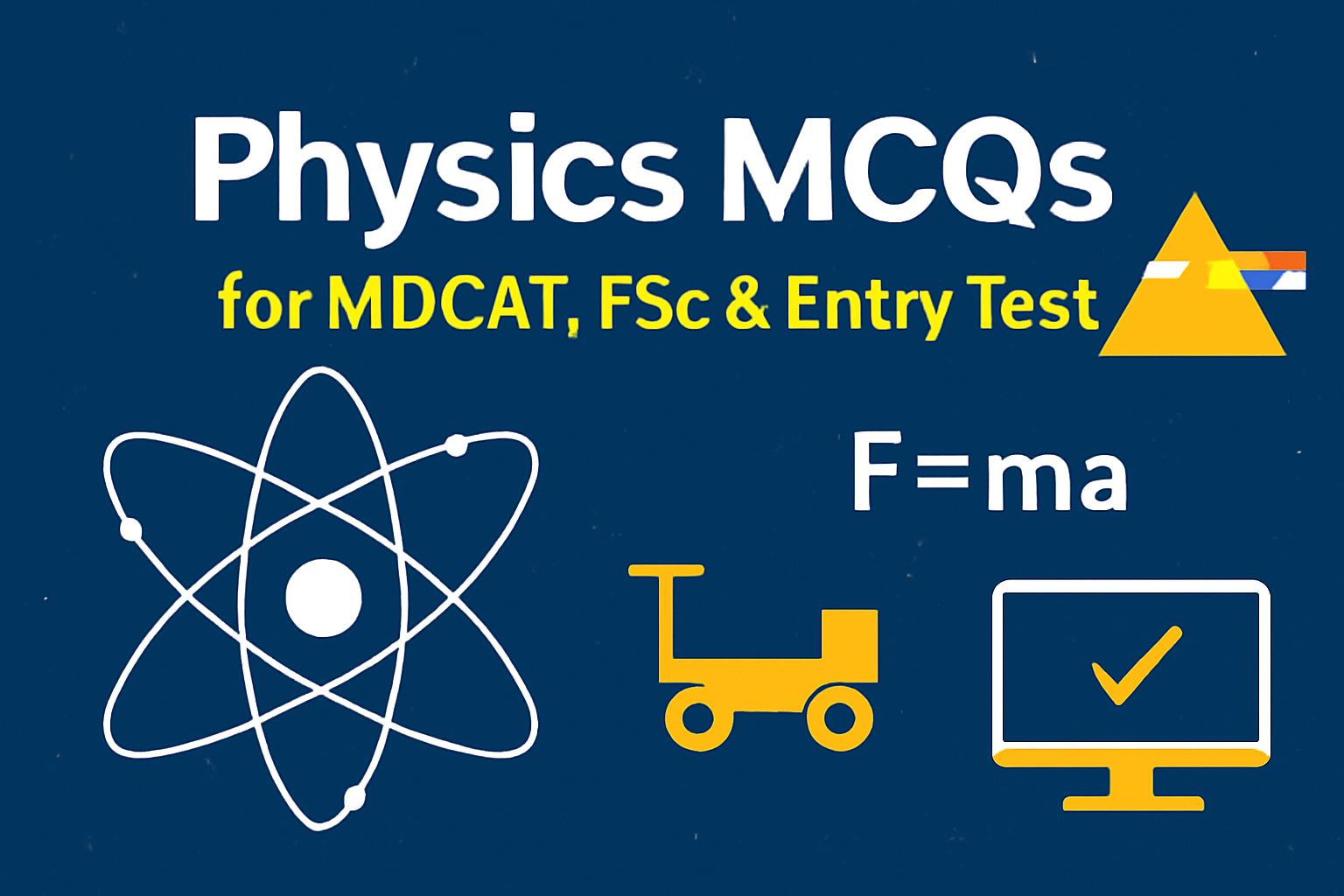
Physics
Rotational and Circular Motion
Page 18 of 24
#137 On a frictionless banked curve of radius $r$ and bank angle $\phi$, the ideal speed is:
A) $v=\sqrt{gr\tan\phi}$
B) $v=\sqrt{rg\tan\phi}$
C) $v=rg\phi$
D) $v=\sqrt{g/\tan\phi}$

#138 On a frictionless banked curve of radius $r$ and bank angle $\phi$, the ideal speed is:
A) $v=\sqrt{rg\tan\phi}$
B) $v=rg\phi$
C) $v=\sqrt{gr\tan\phi}$
D) $v=\sqrt{g/\tan\phi}$

#139 In absence of external torque, a spinning body tends to:
A) lose all rotational KE
B) keep its angular momentum vector constant
C) double its angular speed
D) reverse spin spontaneously

#140 On a frictionless banked curve of radius $r$ and bank angle $\phi$, the ideal speed is:
A) $v=\sqrt{rg\tan\phi}$
B) $v=\sqrt{gr\tan\phi}$
C) $v=rg\phi$
D) $v=\sqrt{g/\tan\phi}$

#141 Work done by a constant torque $\tau$ through angle $\theta$ is:
A) $W=I\omega$
B) $W=\tau\,\theta$
C) $W=\alpha\theta$
D) $W=\tau/\theta$

#142 On a frictionless banked curve of radius $r$ and bank angle $\phi$, the ideal speed is:
A) $v=rg\phi$
B) $v=\sqrt{gr\tan\phi}$
C) $v=\sqrt{g/\tan\phi}$
D) $v=\sqrt{rg\tan\phi}$

#143 A mass $m=0.5\,\text{kg}$ moves in a circle of radius $r=1\,\text{m}$ with speed $v=10\,\text{m s}^{-1}$. The required centripetal force is:
A) $mvr$
B) $\dfrac{r}{mv^{2}}$
C) $\dfrac{mv^2}{r}$
D) $\dfrac{v}{mr}$

Page 18 of 24










Register or Login for comments
Comments: